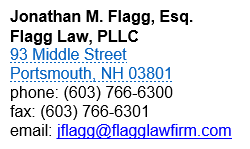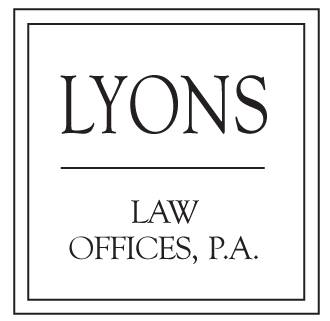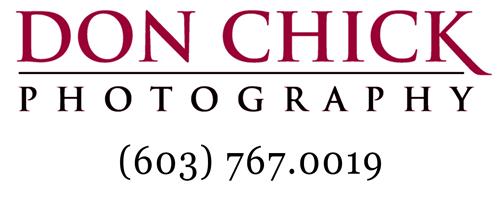Rotary Log for January 16, 2020
Based on the undersigned’s knowledge of the prior meeting, perhaps this edition should be entitled, “Tales from the Big House—a Memoire.” Anyway, with a new year and a fresh start, let us begin. Today, we ventured into the staid world of banking. But rather than smoke-filled, oak-paneled boardrooms wreaking of single malt scotch whiskeys, we traveled into lighter fare concerning good corporate governance and civic responsibility. And all in the form of a self-perpetuating certification agency. But first, the preliminaries.
President Leo presiding. President-elect Flagg doing his best Flagg—no double entendre intended. Judy Ringer led us in America the Beautiful. John Rice gave a quick invocation to Larry Gray’s delight.
Guests and visiting Rotarians? Who knows? You know the drill—Leo, where is the list? Can’t report without the list!
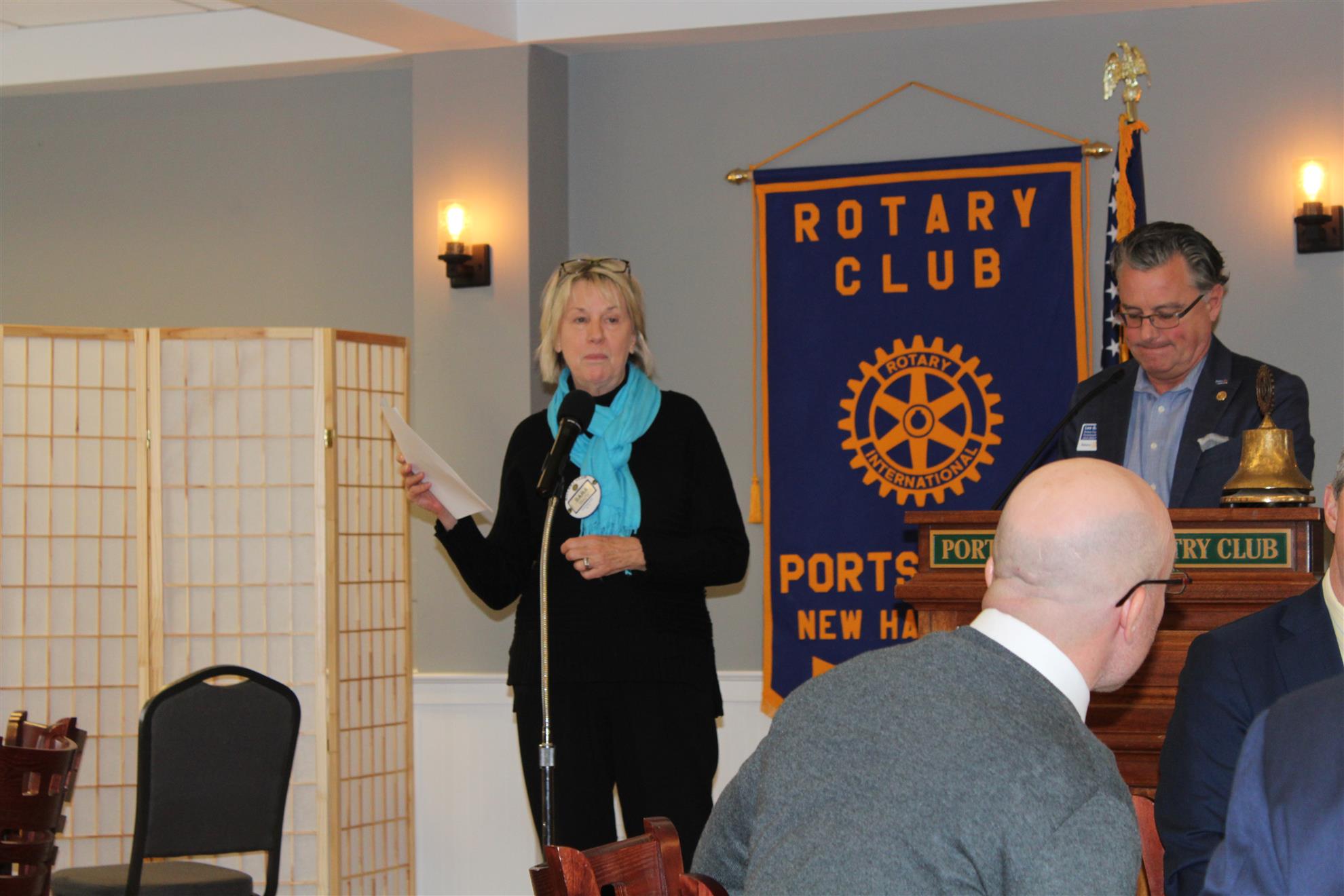
On to general announcements. Sarah Treacy asked for volunteers for the Salvation Army soup kitchen. Sign-up sheets were left on the tables. All help will be most welcome. Sign one, sign all!
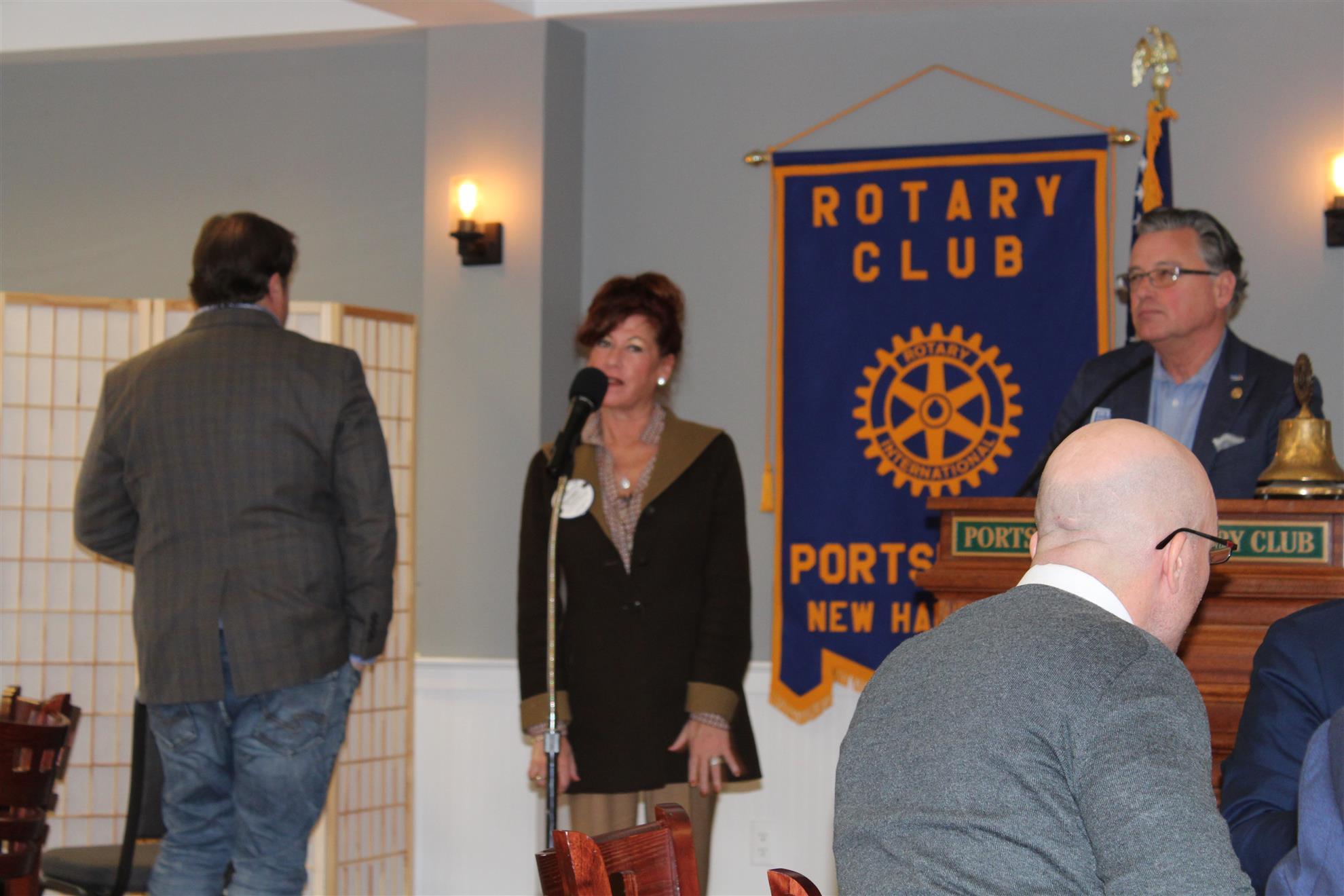
Tiffany asked for volunteers for Cross Roads. She needs two cooks and one server for February 1 and three cooks and two servers for February 5. Please help if you can.
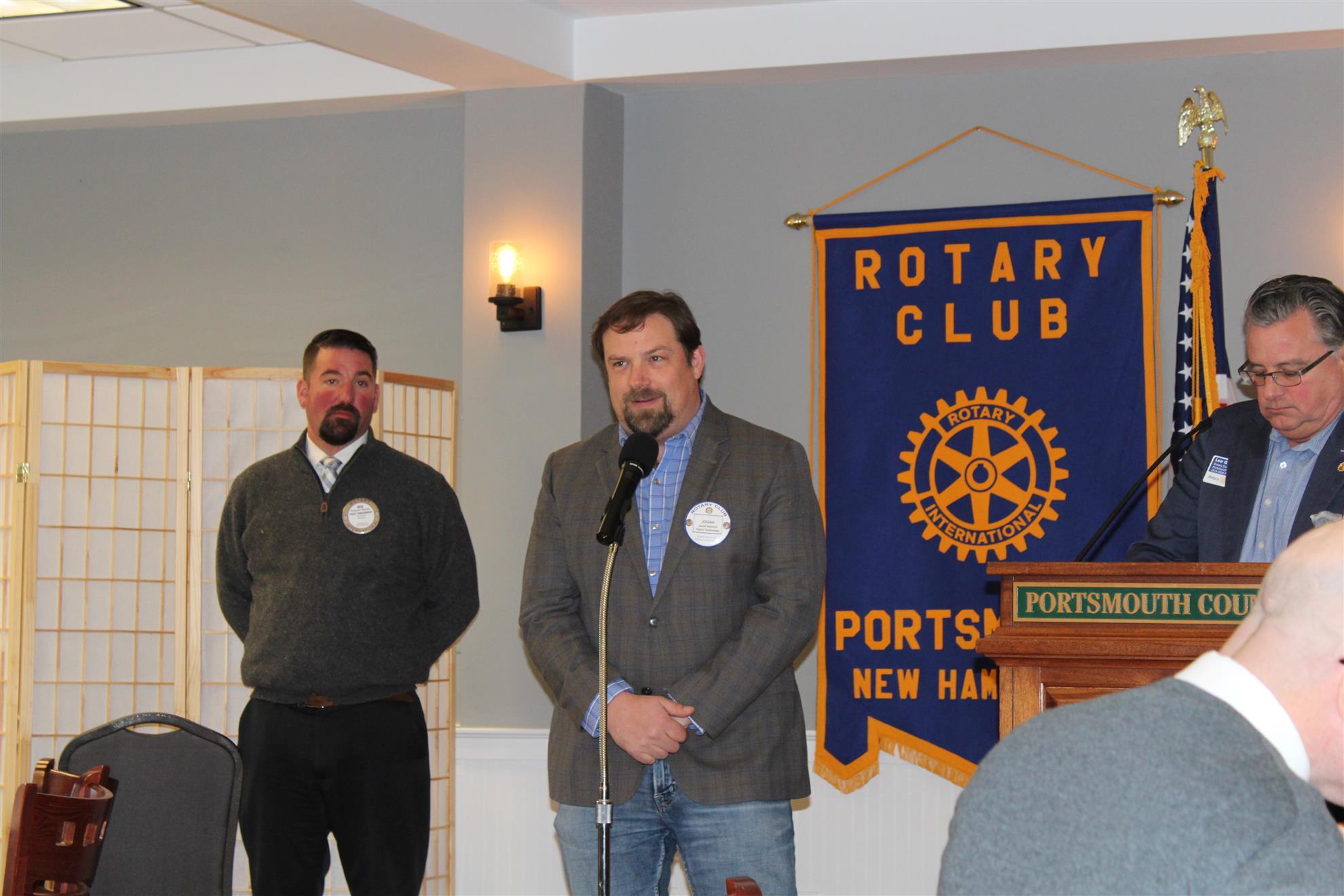
Josiah, chair of the Communications Committee, announced the Club’s website is being overhauled. Anyone wishing to join the effort or anyone having suggestions, please see Josiah.
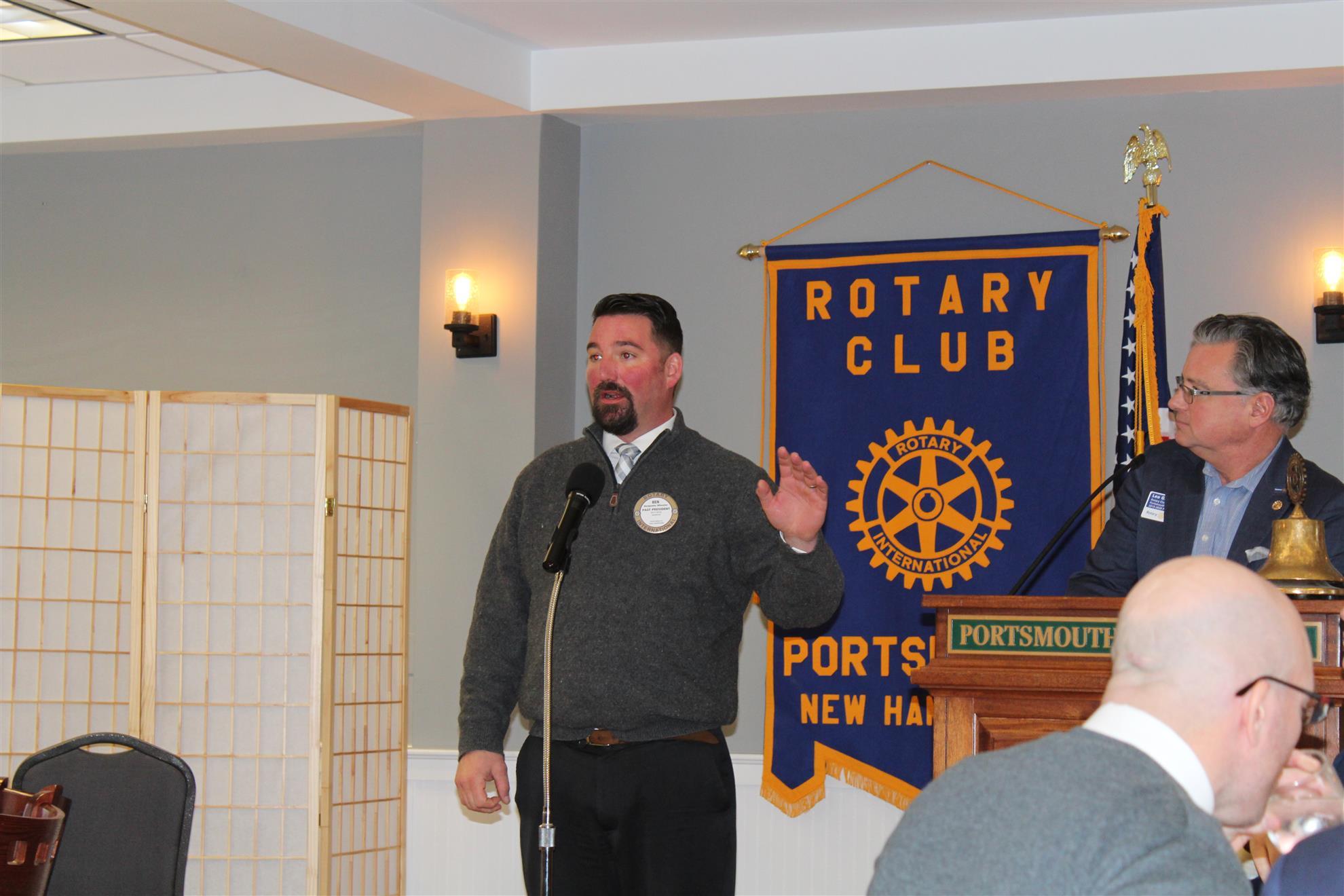
Ben Wheeler thanked all those who offered to donate a dresser for the family in need—Rotary Strong.
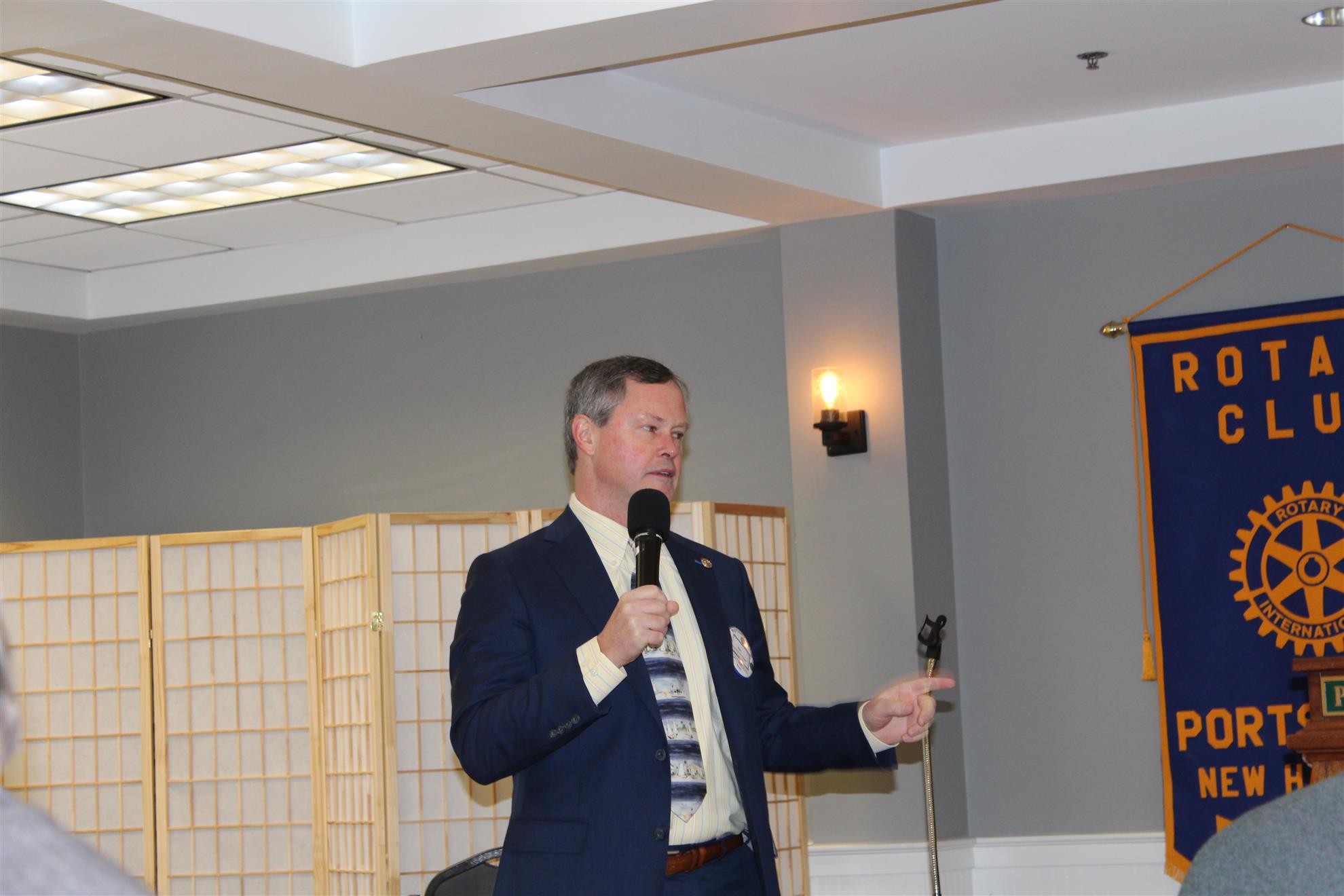
Next up, happy dollars—a sampling. Flagg started with a happy, “my three are back to college”—pure parental rapture. Rick Wallis ponied up along with a few others. With but a paucity of Happy Dollars, Flagg upped the ante and turned happy dollars into fines and beseeched us to fine those sitting next to us. James Petersen led the way by fining Pappas for picking him up late and thus, making him late to the meeting. That’s a $2 debit Pappas’ way.
When challenged to fine fine-master Neal, Pappas demurred—obviously playing the long game of fine avoidance—smart man.
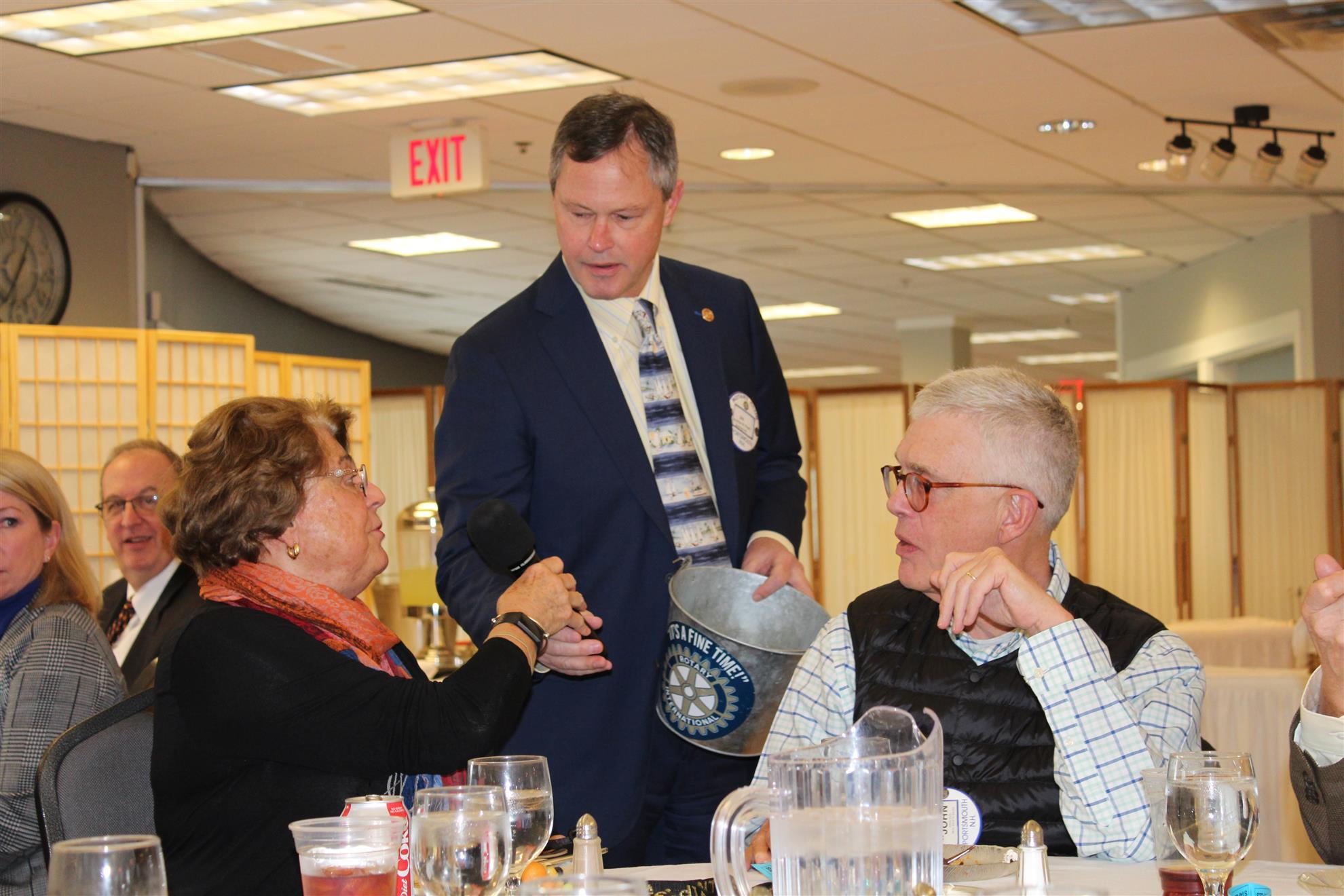
John Rice followed by fining Gene Dougherty for her fickle loyalty to UNH in the form of changed allegiance to a competitor university. Larry Gray gave a belated happy dollar or two for the truncated invocation.
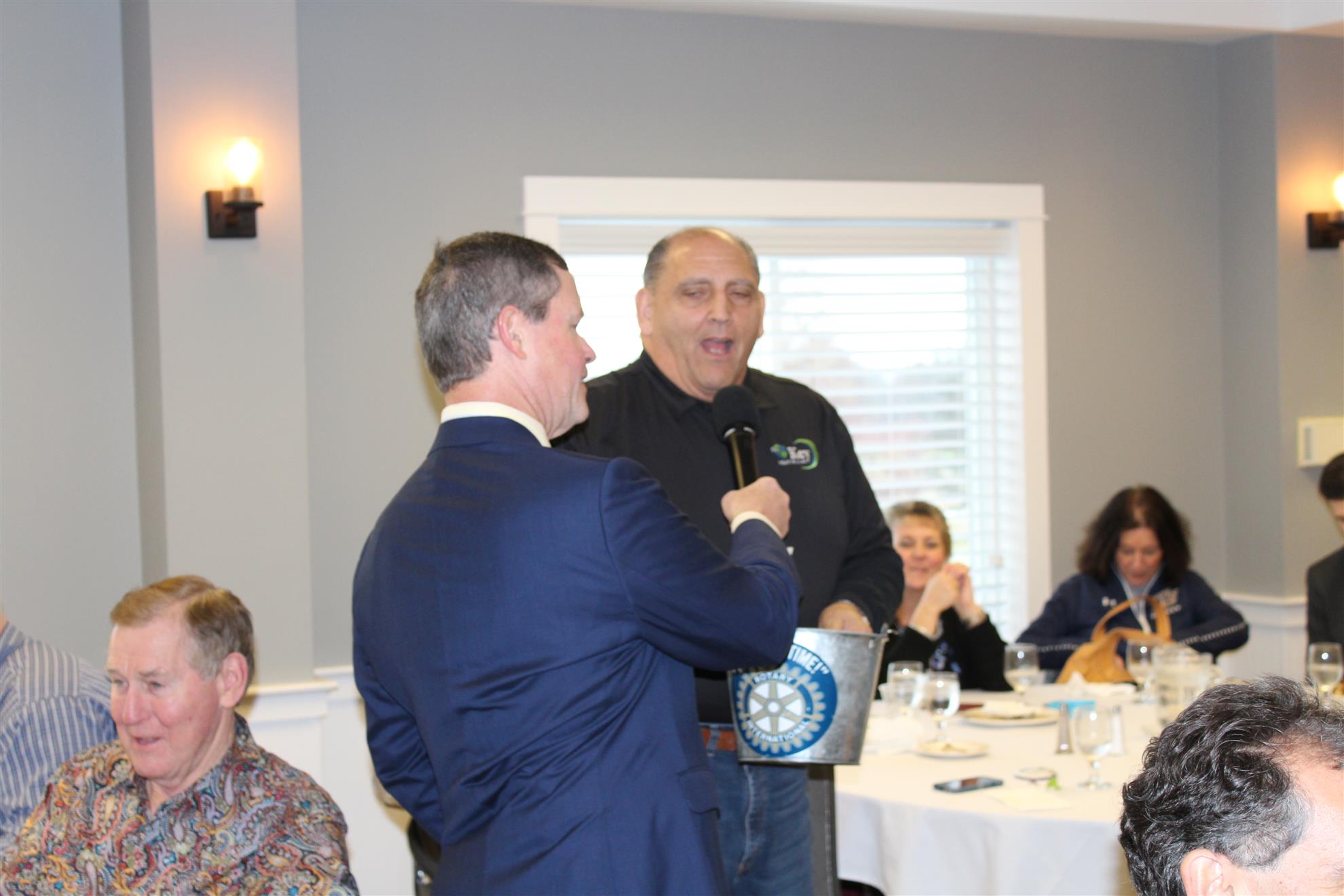
Former police officer Paul Famulari fined Peter Weeks for certain shortcomings in the police station built by Weeks many years ago. Flagg implored Weeks to “shoot off the lock” on his pocket and ante up.
Not to be undone, Fine-master Neal took the stage. Steve and Joe Bove were acknowledged for their yeoman’s work with the Club’s finances. For the collective applause received, a $1 fine was imposed on each. John Lyons was fined $2 because that is what all fine masters have done since John joined our Club.
Weeks was nailed again for commenting about how good Dick Clark looked when the crystal ball dropped in Times Square. Not your typical comment about someone that departed this world quite some time ago. For the record, the person for whom the laudatory comment was made was Ryan Seacrest. He was quite alive at the anointed time—just WOW!?!?!
Neal next took a poll about New Year’s resolutions. It wasn’t quite clear what the fine was for, $1 for having one or $1 for not having one. Hands went up one way or the other.
Justin Finn was fined for excessive eating at the latest Rotary Director’s meeting. That’s no surprise to anyone that has watched Justin at our weekly gatherings. Washing down his third or fourth sandwich, when asked to comment on an important issue, he could only reply, “what are we talking about?” Apparently, he was hyper focused on that lonely sandwich on the table that no one seemed to want. Flagg was fined for making Justin look bad.
Own a Toyota? $1 please. Own an I-phone? You got it--$1. Then things took a turn to the bizarre. Anyone born before 1913? Really? Anyway, the fine was set at $1,000 and to our collective unsurprise, no fine was issued. Too young to know Nixon? $1.
New members as of the last six months had to give a good reason why they should not be fined $1. Or was it a $1 fine if you had no reason why you should not be fined? When Neal makes up his mind, I’m sure he will let us know.
Aileen Duggan was slammed for her premature office holiday decoration efforts. They included no less than 30 wreaths purchased from a vendor other than from our Rotary Christmas Tree sale extravaganza. The fine was obvious--$30. But wait, Karma had a different plan.
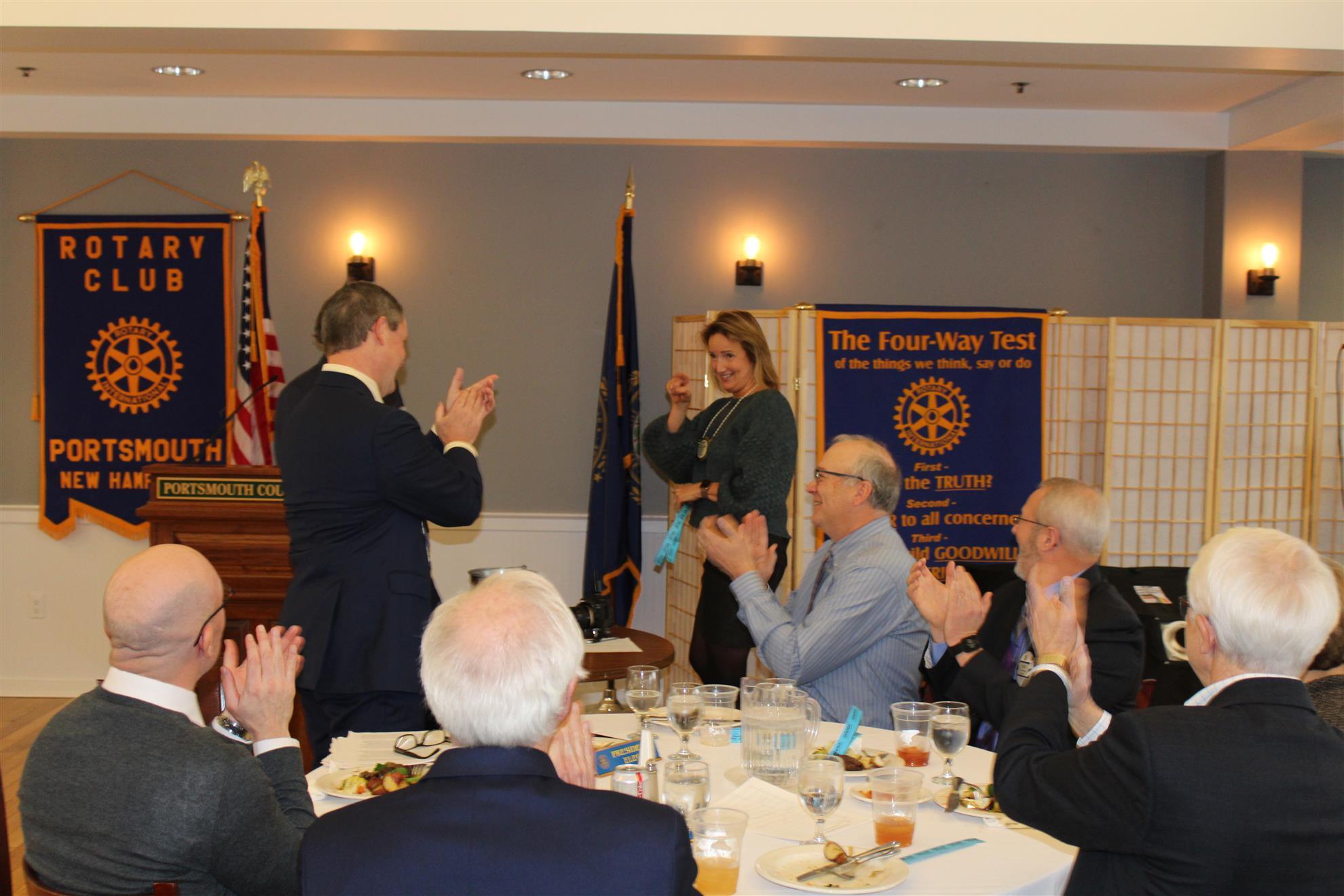
Who won the 50/50 raffle? Of course, Aileen. No match, but the $66 was donated back to the club so bravo to Aileen.
Up next, a Flagg historical minute or two. The subject of this segment--where did the 4-WayTest come from? Rotarian Herbert Taylor initially came up with the four ethic rules in 1932. The new stipulations were an effort to turn around the performance of the Bath Aluminum Company in Chicago. It apparently worked. In 1943, the rules were formally adopted by Rotary and translated into over 100 languages. Herb became Rotary International President from 1954-55. Its reach, of course, is now global. And that is your Rotary minute.
Time for prime time and our speaker. Jay Gibson introduced Rick Wallis who began his banking career in 1982 following graduation from UNH. He started as low man on the totem pole at Piscataqua Savings Bank, advancing to become branch senior loan officer. By 2012, he was President and CEO.
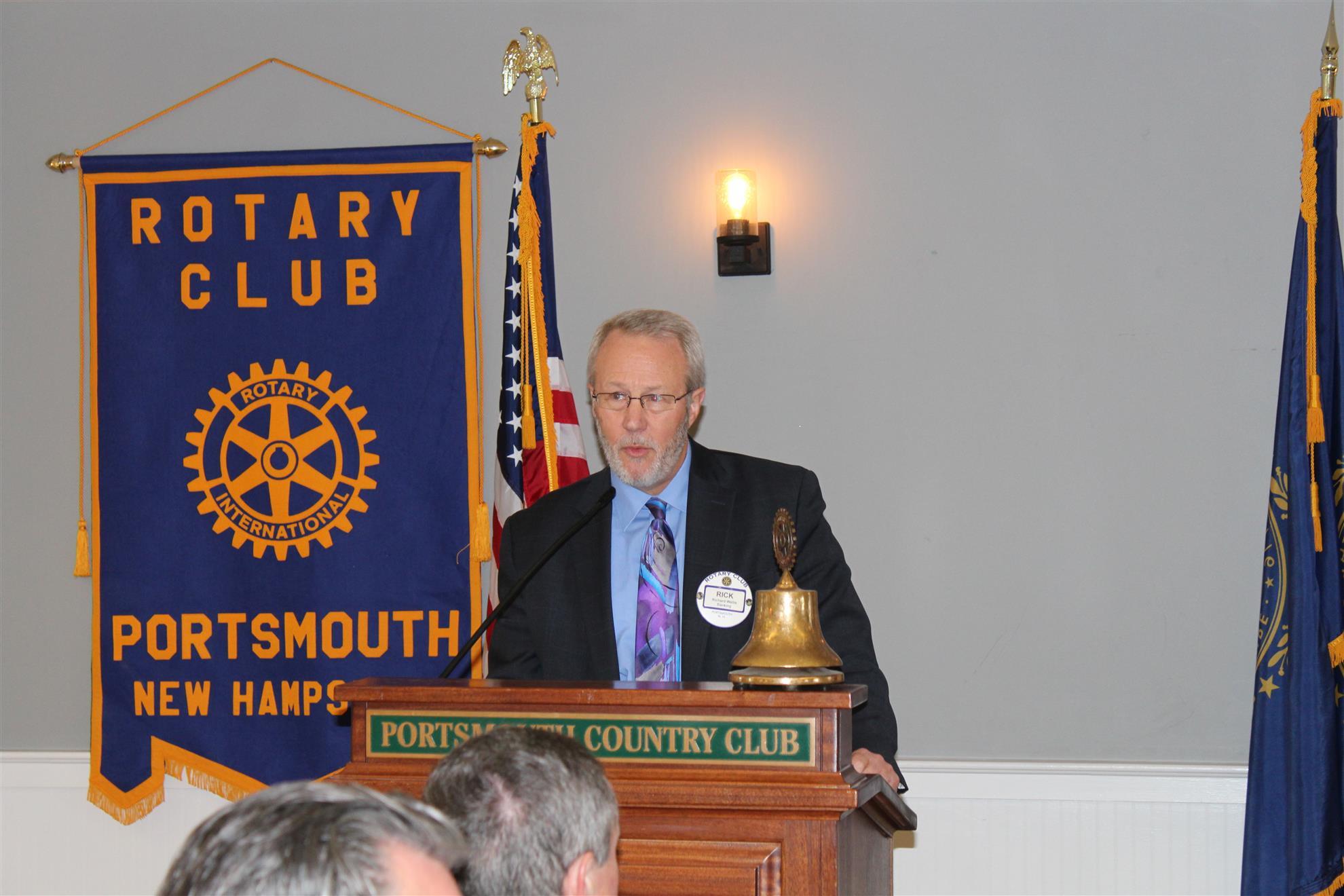
Rick informed us about something known--or perhaps more accurately, not well known--as a B-Corp. The general philosophy underlying the concept of a B-Corp is that doing good as a member of a community leads to financial success, i.e., profit. Forming a B-Corp is but one way to put the philosophy into effect. The historical view of a corporation serving the best interests of shareholders a la Milton Friedman is undergoing a monumental shift. Twelve trillion out of forty-six trillion dollars in investment is now allocated to socially responsible endeavors.
So why a B-Corp? One key benefit is litigation protection. And how to become one? Certification through the “non-profit” B-Lab is the only way currently. There are approximately 3,000 B-Corps worldwide in 64 countries. There are currently ten in New Hampshire. King Arthur (flour), Cabot, Patagonia, Stoney Fields Farms and Ben and Jerry’s are among those that have received the certification.
The certification process is a rigorous one and involves inquiries into four main categories: 1) community, 2) environment, 3) governance and 4) workforce. The community element looks at a corporation’s investment in the local community. Such investment might be sourcing locally, supporting diversity initiatives, engaging in local charitable works, etc. Whether the products/services provided by the corporation address social issues is another example of the kind of criteria considered.
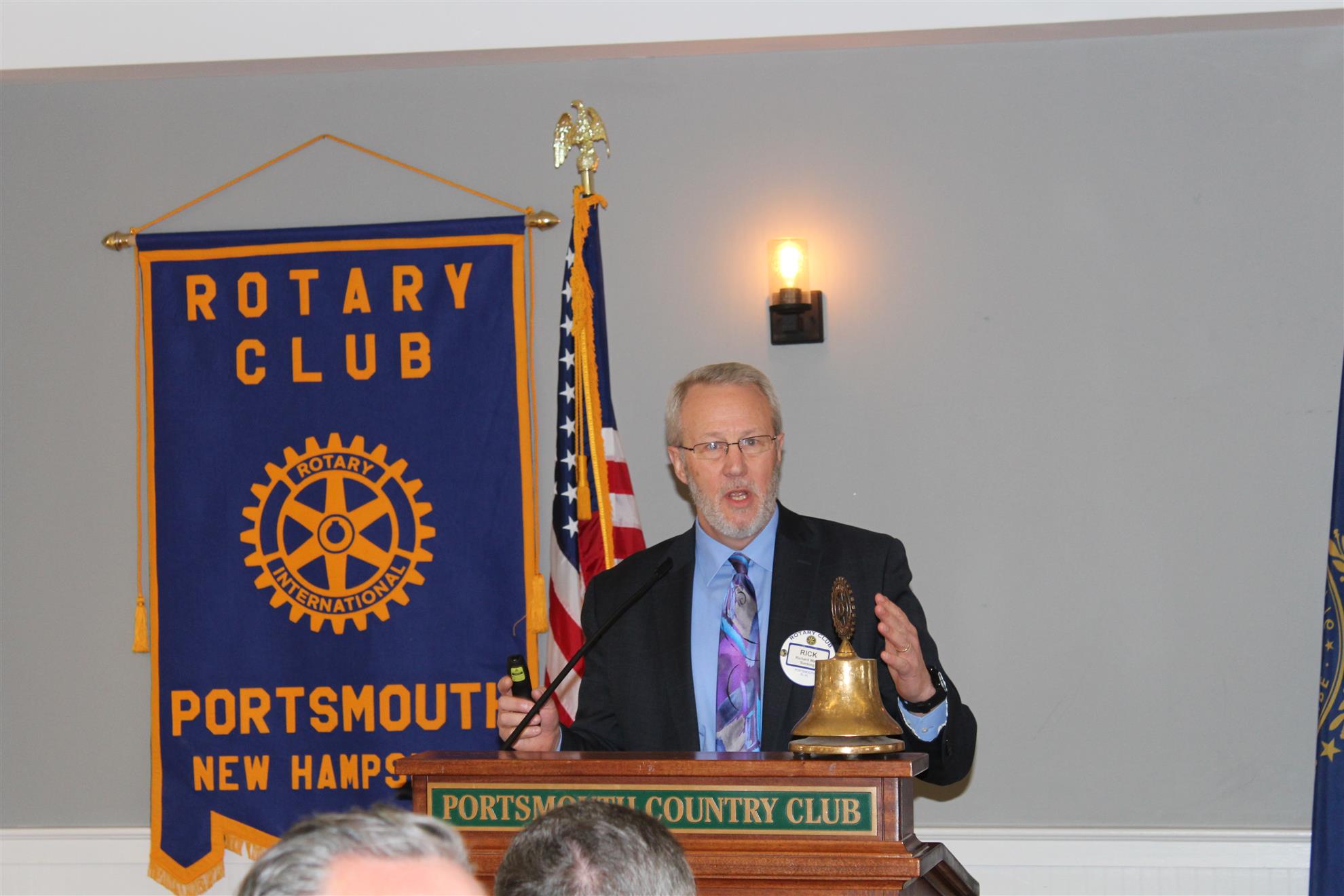
The environment category involves considerations such as energy efficiency, environmentally friendly distribution channels, recycling and land and wildlife conservation. With respect to customers, does the organization promote public benefits, provide for the needs of the underserved and create economic opportunities?
Turning to governance, what is the organization’s mission? Does the organization practice accountability? Transparency? Ethics? Does the organization allow for feedback from customers and employees? Is the organization’s board a reflection of the local community’s demographics?
As for the worker category, does the organization provide training, promotions and ownership opportunities? How are the workers treated? Are workers given a livable wage? Are benefits offered? These are some of the many criteria considered.
So again, why a B-Corp? It enables an organization to distinguish itself from the competition. It provides an avenue to create corporate value to the community. It fosters mutuality. It immediately represents certain values associated with the designation. Again, these are just some of the benefits.
The certification lasts three years and can be renewed through a recertification process every three years. Fees must be paid each year based upon the corporation’s revenues. An impact report has to be prepared each year as well.
The process often takes three or four tries until certification is achieved. Each attempt involves approximately 120 hours of work. There is a score system that looks at how much a corporation gives back to the community. If 10% of profits are put into the community, the corporation receives the highest rating.
One last note. Being a B-Corp does not change a corporation’s tax status. It still must file returns and pay taxes as a C-corp.
With our commitment to the 4-Way Test recertified, our meeting was adjourned.
Until next time. . ..
Respectfully submitted, Mark Lorusso
Photos by Tube Loch





